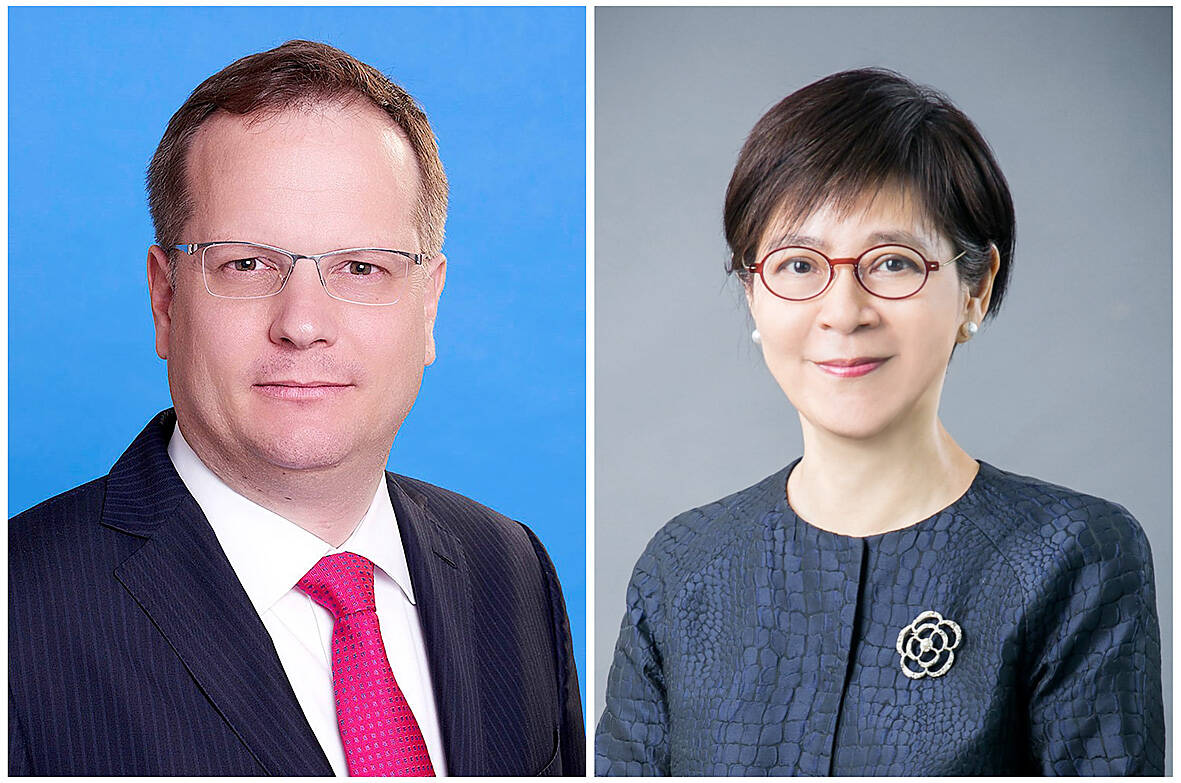Citi has once again been recognized as the Best International Bank for Sustainable Finance and Best International Corporate and Institutional Adviser in Taiwan by leading financial publication The Asset, at The Asset Triple A Sustainable Finance Awards 2025. The bank received more than a dozen accolades across advisory and individual deal categories, showcasing Citi’s leadership in corporate and investment banking in Taiwan.
Citi was recognized across both house and deal categories in Taiwan, including:
House Awards

Photo courtesy of Citibank Taiwan
● Best Bank for Sustainable Finance – International
● Best Corporate and Institutional Adviser – International
● Best Equity Adviser
● Best Mergers and Acquisitions (M&A) Adviser – International
● Best Commercial Bank
Best Deals
●Best GDR - GlobalWafers Company US$689 million GDR
●Best Concurrent Offering - Wiwynn US$1.44 billion concurrent GDR and euro-convertible bond offerings
●Best Convertible Bond - Quanta Computer US$1 billion euro convertible bond
●Best New Bond - Cathay Life Insurance Company US$600 million tier 2 subordinated capital securities
●Best Insurance Capital Bond - Nan Shan Life Insurance Company US$700 million tier 2 capital bonds
●Best Syndicated Loan - Hon Hai Precision Industry Company US$1.1 billion senior unsecured revolving credit facilities
●Best M&A - WT Microelectronics Company US$3.8 billion acquisition of Future Electronics
Christie Chang, Chairman of Citibank Taiwan and Citi Country Officer for Taiwan, said “As a global bank, Citi leverages its extensive network across over 90 markets to provide comprehensive and in-depth market insights with innovative financial solutions that help Taiwanese companies grow globally, and help international companies invest in Taiwan. We remain committed to being a trusted financial partner to our clients.”
Citi was also named Best Bond House in Asia-Pacific by both IFR Asia and FinanceAsia in their most recent annual awards for 2024, and was also recognized as the Best Equity and Equity Linked Adviser, Best M&A Adviser and Best Commercial Bank in Asia Pacific by The Asset.
“This recognition is testament to the teams’ focus on supporting Citi’s clients to deliver the best possible solutions for them. I would also like to thank clients for the trust they place in our network and advice on their key business decisions,” said Jan Metzger, Head of Asia Pacific Investment Banking for Citi.
According to Dealogic, Citi supported clients across Asia Pacific in raising over US$250 billion from global equity and debt markets in 2024, including nearly US$10 billion for clients in Taiwan.
IFR Asia highlighted that Citi stood out for its ability to meet a variety of issuer needs and push for successful execution of sometimes challenging deals and that Citi was the clear leader for its geographical reach, broad distribution and ability to execute deals across the credit spectrum.
Over the past six decades in Taiwan, Citi has won numerous recognitions from reputed media publications. This year marked its 22nd consecutive year winning The Asset’s Best International Bank for Sustainable Finance, alongside a 10-year streak as Best International Corporate and Institutional Adviser, 8th consecutive year as Best International M&A Adviser, 4th consecutive year as Best Equity Adviser, and 2nd consecutive year as Best Commercial Bank.

STEEP DECLINE: Yesterday’s drop was the third-steepest in its history, the steepest being Monday’s drop in the wake of the tariff announcement on Wednesday last week Taiwanese stocks continued their heavy sell-off yesterday, as concerns over US tariffs and unwinding of leveraged bets weighed on the market. The benchmark TAIEX plunged 1,068.19 points, or 5.79 percent, to 17,391.76, notching the biggest drop among Asian peers as it hit a 15-month low. The decline came even after the government on late Tuesday authorized the NT$500 billion (US$15.2 billion) National Stabilization Fund (國安基金) to step in to buoy the market amid investors’ worries over tariffs imposed by US President Donald Trump. Yesterday’s decline was the third-steepest in its history, trailing only the declines of 2,065.87 points on Monday and

TAKING STOCK: A Taiwanese cookware firm in Vietnam urged customers to assess inventory or place orders early so shipments can reach the US while tariffs are paused Taiwanese businesses in Vietnam are exploring alternatives after the White House imposed a 46 percent import duty on Vietnamese goods, following US President Donald Trump’s announcement of “reciprocal” tariffs on the US’ trading partners. Lo Shih-liang (羅世良), chairman of Brico Industry Co (裕茂工業), a Taiwanese company that manufactures cast iron cookware and stove components in Vietnam, said that more than 40 percent of his business was tied to the US market, describing the constant US policy shifts as an emotional roller coaster. “I work during the day and stay up all night watching the news. I’ve been following US news until 3am

Six years ago, LVMH’s billionaire CEO Bernard Arnault and US President Donald Trump cut the blue ribbon on a factory in rural Texas that would make designer handbags for Louis Vuitton, one of the world’s best-known luxury brands. However, since the high-profile opening, the factory has faced a host of problems limiting production, 11 former Louis Vuitton employees said. The site has consistently ranked among the worst-performing for Louis Vuitton globally, “significantly” underperforming other facilities, said three former Louis Vuitton workers and a senior industry source, who cited internal rankings shared with staff. The plant’s problems — which have not

TARIFF CONCERNS: The chipmaker cited global uncertainty from US tariffs and a weakening economic outlook, but said its Singapore expansion remains on track Vanguard International Semiconductor Corp (世界先進), a foundry service provider specializing in producing power management and display driver chips, yesterday withdrew its full-year revenue projection of moderate growth for this year, as escalating US tariff tensions raised uncertainty and concern about a potential economic recession. The Hsinchu-based chipmaker in February said revenues this year would grow mildly from last year based on improving supply chain inventory levels and market demand. At the time, it also anticipated gradual quarter revenue growth. However, the US’ sweeping tariff policy has upended the industry’s supply chains and weakened economic prospects for the world economy, it said. “Now